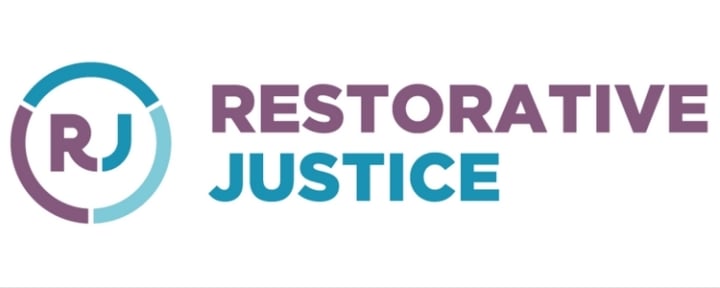Restorative justice
Restorative Justice (RJ) is a victim focused approach that empowers victims and communities.

Becoming a victim of crime is often a traumatic experience. Many victims feel that their life has been turned upside down, and what was once normal and familiar no longer feels safe. Whilst the criminal justice process deals with the offence, it can sometimes leave those harmed feeling out of control and in need of answers that simply cannot be provided during the formal process.
Restorative Justice can change this.
What is Restorative Justice?
Restorative Justice (RJ) is a victim focused approach that empowers victims and communities by giving them the opportunity to:
- communicate with the person/s responsible for the offence
- explain how the crime has affected them
- ask questions
- It is about holding offenders to account for what they have done, by helping them to understand the real impact of their behaviour directly from those harmed by their actions.
It is also an opportunity for the offender to take responsibility for what they have done, acknowledge the harm caused and where possible make amends.
As a victim of crime, your details may be passed to a Restorative Justice provider – but participation is voluntary
In Hampshire and the Isle of Wight, the Police and Crime Commissioner has commissioned Restorative Solutions to provide RJ services to victims, on the Isle of Wight they provide the service in collaboration with AgeUK Isle of Wight. Youth Offending Teams also provide these services if the offender is under the age of 18.
If consent has been given a provider may contact you to ensure that you have sufficient information about the Restorative Justice Process, so that you can make an informed choice about whether or not to take part.
Restorative Justice is voluntary for all parties. As the victim, Restorative Justice is about having your voice heard, giving you the opportunity to express how you have been affected by the crime and to have any questions answered.
You should not be pressured into taking part in Restorative Justice. It is also important for you to know that it is voluntary for the offender. Necessary measures will be taken to ensure that any Restorative Justice process considers the needs of the people involved to make sure they are not re-victimised. It will always be delivered by a trained facilitator and in line with recognised quality standards.
Any victim of crime or anti-social behaviour can access Restorative Justice services, regardless of when the offence was committed. Each case will be assessed on an individual basis before being taken forward.
Recently schools and organisations on the Isle of Wight were visited by Jacob Dunne for talks about his experience with Restorative Justice. In 2011, Jacob fatally knocked a man to his death in an unprovoked attack. As a result, he received a two-and-a-half-year custodial sentence for manslaughter of which he served 14 months. On leaving prison Jacob found himself homeless and unemployed. With the encouragement of his victim’s parents, he endeavoured to get his life back on track.
Below is a great video from BBC South about Jacob’s visit:
I want to take part in Restorative Justice – but how?
Depending on the circumstances of the offence, you may be contacted automatically by one of the Restorative Justice providers on the Isle of Wight (for example, if the offender is a Youth, you will be contacted by the Youth Offending Team responsible for the case).
For more information visit www.restorativesolutions.org.uk
Victims of crime on the Isle of Wight can access Restorative Justice services by calling 0800 043 8785, texting ‘RESTORE’ to 66777 or by emailing: hiow@restorativesolutions.org.uk
You will then be directed to the most appropriate provider for your individual situation. Please be aware that service provision varies depending on the nature and complexities of your case; and please note that the information you send is not secured and as a result may be read by persons other than the intended recipient.
